Dear all,
 Welcome to the May newsletter! This month our last two DISC courses of this academic year took place. We are reintroducing the lunch lectures so on May 27th Frank Sperling, (technical director of Nobleo Technology) gave a talk about “Control as part of a Mechatronic System Design”, in between the morning and afternoon course.It was well attended so we will certainly continue the tradition!
Welcome to the May newsletter! This month our last two DISC courses of this academic year took place. We are reintroducing the lunch lectures so on May 27th Frank Sperling, (technical director of Nobleo Technology) gave a talk about “Control as part of a Mechatronic System Design”, in between the morning and afternoon course.It was well attended so we will certainly continue the tradition!
Now the course program has almost finished we are of course working on the new program. More information will follow.
The Summer School is coming up and it’s still possible to join!
Henk Nijmeijer,
scientific director
Martha Otte,
DISC secretariat
The course program 2018-2019 is almost finished and we are working on the program for 2019-2020. More information will follow soon!
Invitation
Jacob Engwerda and Dario Bauso have the pleasure to invite you to participate in the DISC Summer School “When game Theory meets Systems and Control”, which is scheduled to take place from June 17-20, 2019, at NH Leeuwenhorst, Noordwijkerhout, The Netherlands.The invitation is aimed at PhD and research students, staff members, researchers and engineers engaged in the systems and control area. Distinguished speakers will present a series of tutorial lectures.
Scope
Since 1990, DISC has successfully organized yearly summer schools on various topics pertinent to theoretical and practical aspects of systems and control, with an international audience of about 40-60 participants. Together with the graduate course program that is maintained by DISC, the summer schools form part of the educational facilities that DISC offers to PhD students in systems theory and control engineering. The main goal of the summer schools is to familiarize young researchers with recent developments in systems and control as well as in neighboring disciplines, and to provide them with the opportunity to enjoy, in an informal atmosphere, discussions with top researchers in systems and control. The summer schools also provide an opportunity for DISC staff members and others to upgrade their knowledge of specific areas of interest.
Game Theory
This summer school aims to provide on the one hand an overview of different types of modeling approaches and tools which have been developed in game theory for various kind of coordination and allocation problems. On the other hand the aim is to show the ways in which, within different areas of control engineering, multi-actor problems are dealt with.
Three main objectives of this Summer School are:
The class will be a mix of lectures and tutorials. The Summer School ends with a project on consensus and opinion dynamics. Students may hand in a report on this project for an informative assessment. The lectures will include examples of applications, demonstrations and hands on exercises, wherever possible. Participants will have ample opportunity to discuss their own research with the speakers and amongst each other.
Lecturers
The main program will consist of a number of international and national speakers. Keynote lectures will be given by:
Program
Registration
The registration fee, which includes full board and lodging, is
For more information about the accommodation arrangements please refer to the website: https://disc.tudelft.nl/education/summer-school/disc-summer-school-2019/
The school is limited to 50 participants based on a first-come first-serve policy. The registration deadline is June 3, 2019.
You can register at the following website: http://disc-courseplatform.nl. Non DISC members can also send an email to: secr@disc.tudelft.nl (Please mention your full name and university affiliation including address).
For further information, contact the DISC administrative office: Martha Otte (m.w.otte@tudelft.nl) or the organizers: Jacob Engwerda (j.c.engwerda@uvt.nl) and Dario Bauso (d.bauso@rug.nl).
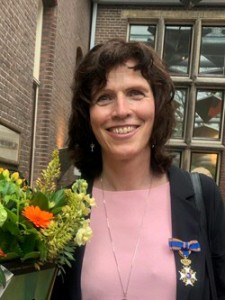 On Friday 26 April, Prof. Jacquelien Scherpen has been appointed Knight of the Order of the Netherlands Lion.
On Friday 26 April, Prof. Jacquelien Scherpen has been appointed Knight of the Order of the Netherlands Lion.
She received this honorably distinction as international pioneer in her field who is widely acclaimed for her excellent personal achievements and great societal reputations. She is known as a very gifted, enthusiastic scientist and teacher, a source of inspiration to students and a strong researcher with a tremendous drive for finding innovative solutions to challenging problems stemming from professional practice. She contributes significantly to the development of new technologies that are indispensable for highly socially relevant applications, such as robotics, digital factories and smart energy grids.
She is the driving force behind the strengthening and broadening of engineering research and teaching in Groningen.
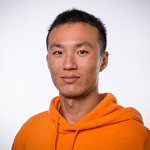 Yichao Liu, currently a postdoc at DCSC, received the good news that his Marie Curie proposal has been approved for funding. This means that the EU will fund him for two years under the H2020 program, for a total of about 176 KEur. His project name is called EDOWE and is about fault diagnosis and fault tolerant control of offshore wind turbines.
Yichao Liu, currently a postdoc at DCSC, received the good news that his Marie Curie proposal has been approved for funding. This means that the EU will fund him for two years under the H2020 program, for a total of about 176 KEur. His project name is called EDOWE and is about fault diagnosis and fault tolerant control of offshore wind turbines.
From July 14 – July 20, the S.I.D.R.A. PhD Summer School 2019 will take place in Bertinoro, Italy.
The two themes presented this year are “Model reduction by moment matching for linear and nonlinear systems“, coordinated by professor Alessandro Astolfi (University of Rome Tor Vergata – Imperial College London), and “Intelligent collaborative robotics“, coordinated by professors Paolo Rocco (Politecnico di Milano) and Andrea Maria Zanchettin (Politecnico di Milano.
For more information see: http://sidra2019.dei.unibo.it/
The 4th FourCModelling workshop organized by the consortium of the EU RISE project “FourCModelling: Conflict, Competition, Cooperation and Complexity: Using Evolutionary Game Theory to Model Realistic Populations” (https://www.city.ac.uk/about/schools/mathematics-computer-science-engineering/mathematics/mathematical-biology/FourC-Modelling) will take place at Kasteel Vaalsbroek (https://www.bilderberg.nl/vaals/kasteel-vaalsbroek/) near Maastricht, the Netherlands, on July 8-11, 2019.
The workshop will consist of talks, discussion and breakout sessions focusing on the four main themes of the project: multiplayer evolutionary games in structured populations, complex foraging games, modelling human social behaviors, and game theory of cancer and its treatment). The event is open to researchers whose areas of expertise complement these themes. For more information, see the workshop website https://estore.city.ac.uk/product-catalogue/conference-events/conferences/4c-modelling-workshop and/or contact Katerina Stankova (k.stankova@maastrichtuniversity.nl).
Berlin is preparing and calling for the 21st IFAC World Congress, 12-17 July 2020 and now only six months are left to submit your contributions to the world’s automation and control society meeting in Germany’s vibrant capital, the crosspoint of innovation, science and culture.
Every three years the international automatic control community meets to exchange and discuss the newest research findings in the broad field of systems, control and automation. With several thousand attendees from all over the world, the IFAC World Congress is the biggest and most important meeting of this kind and the Berlin Congress marks the 21st edition of this series.
For six days in 2020, Berlin will be the place where new collaborations and stimulating ideas from theory development, over academic and industrial applications, to technology development and further fields can originate, in and after the sessions. It will be the place where you meet colleagues from across the globe to have in and off-topic discussions and interactions.
In this atmosphere, the 2020 World Congress promises to be a one of a kind experience.
Please find the 2nd Call for Papers outlining the IFAC 2020 topics and main submission categories here:
https://www.ifac2020.org/fileadmin/public/Redaktion/Dokumente/PDF/IFAC_WC_2020_Berlin_SecondCfP_A4_redSize.pdf
In addition to standard congress elements the key role of automation and control for successfully meeting societal challenges of today and tomorrow will be addressed by Topical Days on Mobility and Transportation, Digitalization, Industry 4.0 and the changing working world, Sustainable green energy and resource supply, Quality of life & health care, complemented by a special topical day on Artificial Intelligence and Control.
Industry presentations at different levels organized in Industrial Evening Sessions will offer an open and lively get together between academia, research and industry. Late Breaking Results and Extended Abstract submissions aim at application-oriented contributions to industrial, economic or social fields, and research from other scientific communities.
Please be reminded also of the very special cultural event the first “IFAC Control Orchestra”. The idea is to form an orchestra consisting solely of people from the control community, to practice and entertain on site during the world congress and to present a live performance during the congress. Enrollments are very welcome at any time as well as proposals for the indispensable pre-congress Workshops and Tutorials at the congress website www.ifac2020.org
Please mark your calendars already now, save the date and prepare for your submissions!
Looking forward to meeting you in Berlin in 2020,
Frank Allgöwer Klaus Janschek
(IFAC President 2017-2020) (IFAC2020) Coordinating/General Chair)
————————————————————————————-
IFAC 2020 contact: info@ifac2020.org
————————————————————————————-
Save the following IFAC 2020 key dates:
15 May 2019 PaperCept opens for submission
15 Sep 2019 Open invited track proposals
15 Oct 2019 Invited sessions proposals
31 Oct 2019 Draft manuscript submission
28 Feb 2020 Late breaking results submission
KU Leuven has a vacancy for a professor in the area of machine design, automation, and process control. Please see: https://www.kuleuven.be/personeel/jobsite/jobs/55037624?hl=en&lang=en
The Control Systems group at Eindhoven University of Technology has several positions open:
Delft University of Technology
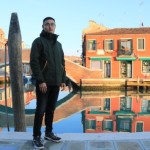 Name:Jingwei Dong
Name:Jingwei Dong
Starting date: 01-10-2018
Function: PhD student
Email: j.dong-6@tudelft.nl
Group: DCSC
Supervisor: Dr. T. Kevickzy & dr. P. Mohajerin Esfahani
Hi, I am Jingwei Dong. I have joined DCSC as a PhD student under the supervisor of Professor Keviczky and Mohajerin Esfahani since 3rd October 2018. I received a Bachelor’s in Automation and a Master’s in Control Science and Engineering. I am currently working on fault detection technology and its application on industrial systems.”
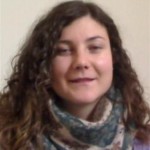 Name: Barbara Franci
Name: Barbara Franci
Starting date: 01-03-2019
Function: Postdoc
Email: b.franci-1@tudelft.nl
Group: DCSC
“I am Barbara Franci and I am an Italian girl. I graduated in Mathematics at University of Siena and I did my PhD in Pure and Applied Mathematics at Politecnico di Torino. I am now about to start a PostDoc a TuDelft working with Prof. Sergio Grammatico.
Game Theory and Graph Theory are the mathematical areas that most interest me. Indeed, my PhD thesis was about application of GameTheory on a network cloud storage model. On the other hand, for this PostDoc, I will work on application of Game Theory to hybrid systems. I will conduct theoretical and algorithmic research on complex multi-agent systems. The research will develop and build upon tools from Game Theory, monotone and fixed-point operator theory, statistical learning, distributed optimization and control.
The main application areas will be distributed control for smart power grids and multi-vehicle automated driving.”
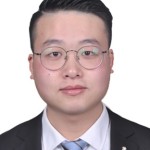 Name: Sun Dingsan
Name: Sun Dingsan
Starting date: 01-03-2019
Function: PhD student
Email: d.sun-1@tudelft.nl
Group: DCSC
“My name is Sun Dingshan, a new PhD student at Delft Center for Systems and Control. I got my BSc degree of mechanical engineering in 2015, from Northeastern University, China, and got my MSc degree of Aeronautical and Astronautical Science and Technology in 2018, from Shanghai Jiao Tong University, China. My current research topic is Multi-level multi-agent control of uncertain hybrid systems with a network structure.”
Name: Camilo Orozco
Starting date: 01-03-2019
Function: PhD student
Email: c.orozco@tudelft.nl
Group: DCSC
“I am pursuing my PhD at the University of Bologna (Italy) in the framework of the INCITE project in which TU Delft participates. My research interests include optimization algorithms applied to the energy management of microgrids and integration of vehicle-to-grid (V2G) services. As a visiting researcher at DSCS, I will spend the next four months studying decentralised/distributed control approaches. In particular aimed to expand my research work to real-time control techniques and intra-day control methods that might optimize the operation of local energy systems under the smart grid concept.”
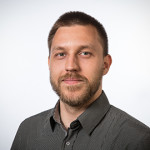 Name: Suad Krilašević
Name: Suad Krilašević
Starting date: 25-04-2019
Function: PhD student
Email: s.krilasevic-1@tudelft.nl
Group: DCSC
Supervisor: Dr. Sergio Grammatico
“Hello, my name is Suad Krilašević and I come from Bosnia and Herzegovina. I received my MSc degree with honors in Electrical Engineering from the University of Sarajevo in September of 2018. Trough internships in Bosch and CERN, I gained practical working experience. My primary field of study is control theory.
Here at TU Delft, I will be conducting research under the project “Game-theoretic Control for Complex Systems of Systems” (COSMOS) for my PhD under the mentorship of professor Sergio Grammatico”.
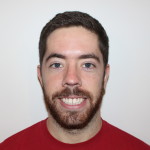 Name: Rodrigo Pérez Dattari Starting date: 15-05-2019
Name: Rodrigo Pérez Dattari Starting date: 15-05-2019
Function: PhD student
Group: CoR
Supervisor: Dr. Jens Kober
I recently graduated from the University of Chile, where I obtained a Master’s degree in Electrical Engineering. Throughout this degree, I proposed and validated a method for teaching robots to solve sequential decision-making problems using human corrective feedback. I modified an algorithm originally designed to shape policies parametrized as a linear model of basis functions to work with deep neural networks. As a consequence, I wrote two conference papers as a first author, one of which will be presented at the International Conference on Robotics and Automation 2019 (ICRA).
I decided to specialize in Robotics and Artificial Intelligence while working on my Electrical Engineering Bachelor’s degree at the University of Chile, where I had the opportunity to join the UChile Robotics Team. The UChile Robotics team is a group of students/researchers who work together to compete each year at the worldwide RoboCup Standard Platform League competition, a robot soccer league. On this team, I got my first chance to interact with robots and the engineering solutions for real-world systems, and I really liked it! As part of the team, I worked on aspects of our robot’s development including audio signal processing, computer vision, intelligent control, and decision-making. I attended the RoboCup in the years 2017 (Japan) and 2018 (Canada).
During the Ph.D. at TU Delft, I will be working on Imitation Learning and Inverse Control, supervised by Dr. Jens Kober. Being able to take advantage of the amazing resources and expertise at TU Delft is a great motivation for me. I’m looking forward to working at the department of Cognitive Robotics.
Eindhoven University of Technology
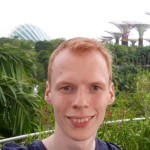 Name: S.B. Thuijsman
Name: S.B. Thuijsman
Starting date: 01-05-2019
Function: PhD
Email: s.b.thuijsman@tue.nl
Group: CST
Supervisor: dr. M.A. Reniers
Project: Ecsel Project Arrowhead Tools
Hi, my name is Sander and I’m 23 years old. I’ve recently started working on a PhD project within the Control Systems Technology group of the Mechanical Engineering department at Eindhoven University of Technology. During my Bachelor and Master Mechanical Engineering, I have specialized on Supervisory Control theory, by performing applied research regarding algorithmic efficiency of synthesis algorithms and research on the cyber security of supervised systems. For my PhD, I will be working on modular supervisory controller synthesis, and synthesis of supervisors that are robust to asynchrony between the controller and the physical platform. The project is in cooperation with ASML, where I wish to apply the academic research in industry. Also, I like to play the guitar and I’m active in Eindhoven’s student cycling team.
University of Groningen
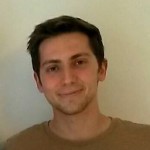 Name: Riccardo D’Anniballe
Name: Riccardo D’Anniballe
Starting date: 01-06-19
Function: PhD student
Email: r.danniballe@rug.nl
Group: Robotics group
Supervisor: prof. dr. Raffaella Carloni
Project: design, characterization and control of soft actuator
Hello! I’m Riccardo D’Anniballe and I come from Italy. I hold my Bachelor and Master degree in “Energy engineering” at the “Alma Mater Studiorum” University of Bologna (Italy). My master thesis project focused on the integration of piezoelectric nanofibrous mats in a composite laminates in order to obtain a self-sensing material. Thanks to the experience I had with the “electrospinning research group”, which was with partnership between University of Groningen and University of Bologna, I got exposed to “Magnify Project” and started my PhD. My research project focused on the design, the electro-mechanical characterization, and the control of soft actuator made of electro-active materials.
In my spare time I cultivate my passion for movies and practise any kind of sport, in particular I am a gymnastic amateur athlete.
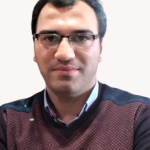 Name: Behzad Sinafar
Name: Behzad Sinafar
Starting date: 01-05-2019
Function: Guest researcher (Visiting PhD Student)
Email: b.sinafar@rug.nl
Group: Systems, Control and Applied Analysis
Supervisor: Dr.Stephan Trenn
Project: Distributed control of interconnected switched affine systems
Behzad Sinafar received the B.S. degree in electrical engineering from University of Tabriz, Tabriz, Iran, in 2012 and the M.S. degree in electrical engineering from Sharif University of Technology, Tehran, Iran, in 2014. He is currently pursuing the Ph.D. degree with the University of Tabriz, Tabriz, Iran, starting from 2016. His current research interests include cooperative control of multi-agent systems, switched systems, and control of power electronic systems.
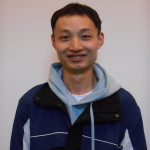 Name: Bo Jin
Name: Bo Jin
Starting date: 01-04-2019
Function: PhD student
Email: jinbo710301@gmail.com
Group: DTPA
Supervisor: Ming Cao
I got the bachelor degree of Automation in Northwestern Polytechnical University in 2016 and the master degere of control theory and control engineering in Northwestern Polytechnical University in 2019. My research interests include distributed model predictive control, distributed optimization.
University of Twente
Name: Felix Schwenninger
Starting date: 01-05-2019
Function: Assistant Professor in Complex Systems
Email: f.l.schwenninger@utwente.nl
Group: Chair HS
Supervisor: H.J. Zwart
My name is Felix Schwenninger and I am originally from Austria. After my Bachelor and Master studies in Vienna, I obtained my PhD in mathematics from the University of Twente in 2015. After Post-Doc positions in Germany I am now very much looking forward to return to the Netherlands. My core research interests range around the interplay of functional analysis and pde’s, particularly in systems theory.
Wageningen University & Research
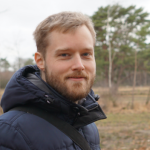 Name: Edwin Ross
Name: Edwin Ross
Starting Date: 01-04-2019
Function: PhD student
Email: edwin.ross@wur.nl
Group: Mathematical and Statistical Methods (Biometris)
Supervisors/Promotors: Prof. Dr. Ir. Karel J. Keesman, Dr. Ir. Martijn Wagterveld
Project: Continuous monitoring of oxychlorides through sensor data fusion
Hello everyone, I am Edwin Ross. I have an educational background in Mechanical Engineering and Environmental Engineering, completed a professional doctorate in engineering degree in automotive system design and have professional experience in system architecting and concept development in the automotive and aerospace sectors. Amongst other projects, I have worked on increasing the water- and energy efficiency of a dyery, the dynamic stability of large-scale weirs, optimal design and control of hybrid powertrains and optimal design of future aircraft.
In April 2019 I started a PhD project at the Wetsus institute, as part of the Biometris group at WUR. Here will focus on applying sensor data fusion as a means to estimate oxychlorides concentrations stemming from water disinfection using chlorine. Even though this process is used on a large scale across the globe, these compounds have remained problematic, as they are hazardous, difficult to measure and costly to remove. In addition, I will investigate whether machine learning techniques can be used to augment the prediction of oxychloride estimation, especially regarding robustness. The end goal is twofold: To both develop a cost-effective, real-time means of measuring oxychlorides and to further the knowledge of sensor data fusion and the application thereof as a whole, in the water technology sector.
Delft Universtity of Technology
Candidate: Baptiste Sinquin
Group: DCSC
Thesis: Structured matrices for predictive control of large and multi-dimensional systems, with application to adaptive
Promotor: Prof.dr.ir. M. Verhaegen
Date: 08-05-2019
Location: Aula Senaatszaal, Mekelweg 5
Time: 12.30
Candidate: Laurens Bliek
Group: DCSC
Thesis: Automatic Tuning of Photonic Beamformers: a Data-driven Approach
Promotor: Prof.dr.ir. M. Verhaegen and Dr.-Ing. S. Wahls
Date: 09-05-2019
Location: Aula Senaatszaal, Mekelweg 5
Time: 12.30
Eindhoven University of Technology
Candidate: L.L.G. Blanken
Group:CST
Thesis:Learning and Repetitive Control for Complex Systems, With Application to Large-Format Printers
Promotor: dr.ir. T.A.E. Oomen and Prof. M. Steinbuch
Date: 21-05-2019
Location: TUE, zaal Atlas 0.710
Time: 16:00
University of Twente
Candidate: Riza Bayoglu
Group: Biomechanical Engineering
Thesis: Twente Spine Model; Development, Validation and Application of a Complete and Coherent Musculoskeletal Model of the Human Spine
Promotor: prof.dr.ir. H.F.J.M. Koopman en prof.dr.ir. N.J.J. Verdonschot
Date: 23.05.2019
Location: Waaier 4, Prof.dr. G. Berkhoff zaal
Time: 16:45
The next issue of this Newsletter will appear in June 2019
We encourage the contributors to provide newsworthy information. In principle, we intend to publish any message offered. However, we reserve the right to edit certain parts of a submission.
Please send your contributions to: m.w.otte@tudelft.nl
You receive this newsletter because you are a member of DISC. If you want to be removed from the mailing list, please let us know by sending an email to m.w.otte@tudelft.nl